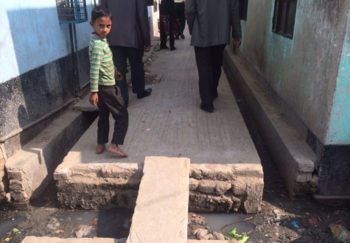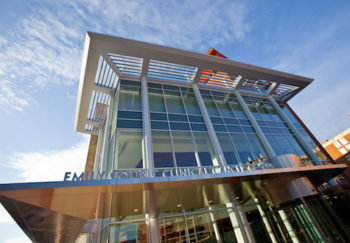This month, we unveiled research about conditions that affect millions in the U.S.: stroke, kidney disease and diabetes (a major cause of kidney disease).
Better Diabetes Monitoring
The Bite-Size Synopsis: UVA is the first hospital in the state to offer a new and improved A1C test, which more accurately monitors how well patients with diabetes are controlling their blood sugar over time. In addition, the test now has the ability to identify those at risk for diabetes and can even officially diagnose the disease.
What This Could Mean for You: An improved test to diagnose and monitor diabetes provides a better tool to fight the seventh-leading cause of death in the United States.
Find out more about this diabetes test.
The Costs of Kidney Disease
The Bite-Size Synopsis: Researchers probed the growing problems of chronic kidney disease and kidney failure (also known as end-stage renal disease) in the United States.

UVA’s Rajesh Balkrishnan, PhD, led the analysis of prescription drug costs. He concluded that in 2013, Medicare spent significantly more on prescriptions for patients suffering from kidney disease and end-stage renal disease than it did, on average, on prescriptions for Medicare patients in general.
What This Could Mean for You: Researchers hope their findings will reduce costs and lead to better kidney disease treatment.
Read about the shocking amount Medicare spends treating kidney disease.
Preventing Stroke in People with AVMs
The Bite-Size Synopsis: Patients with arteriovenous malformations (AVMs), the most common cause of strokes in children and young adults, become more susceptible to stroke over time. Researchers determined that these patients are far more likely to benefit from minimally invasive Gamma Knife radiosurgery while young. Researchers believe the benefits of the Gamma Knife procedure – which can close off AVMs entirely – outweigh the risks.
What This Could Mean for You: Families affected by AVMs should discuss their options with a neurosurgeon, as the findings support Gamma Knife radiosurgery treatment sooner rather than later in life.
Learn more about the benefits and risks of Gamma Knife surgery for AVMs.
Predicting Recurrent Stroke Risk
The Bite-Size Synopsis: High levels of C-reactive protein (CRP), an enzyme found in the blood, signals an increased risk for a second ischemic stroke, the most common kind, researchers determined. This means a simple blood draw combined with genetic information could help predict the risk for recurrent stroke.
What This Could Mean for You: Doctors may one day use a routine blood draw to predict a stroke patient’s risk for another stroke.
Read the full story about assessing ischemic stroke risk.


I am 85 years old. I am having trouble with walking I think that I have PAD because now I can only walk about 2 minutes and I have to rest. I have heart desease but my cardiologist said it is not caused by my heart. He sad my heart is better than most people my age. I would like to get a second opinion.
Thomas J Wharton
I would like a second opinion